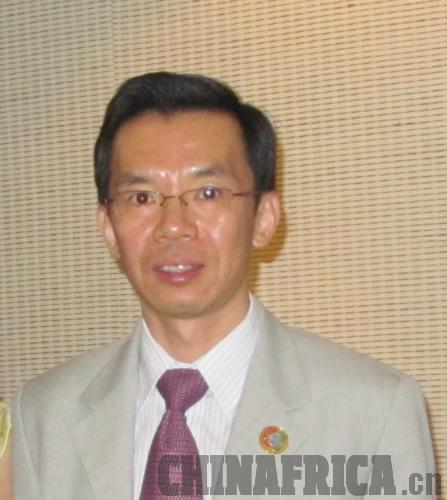| 
The Second Roundtable Conference on China-Africa Cooperation held in Wanning City, Hainan Province on November 10-13 again drew people's attention to the issue of China-Africa cooperation. The issuance of the Wanning Declaration at the conference raised the question: What should China and African countries do to further improve the quality of bilateral cooperation? In an exclusive interview with ChinAfrica reporter Ni Yanshuo, Lu Shaye, Director General of the Department of African Affairs of the Ministry of Foreign Affairs of China shared his views on this topic.
> What's your opinion of the Wanning Declaration issued by the Second Roundtable Conference on China-Africa Cooperation?
Significantly, this roundtable conference was held by Association of Former Diplomats of China (AFDC), which is a non-governmental organization (NGO). In recent years, China has witnessed rapid development of its relations with African countries, with remarkable achievements made in bilateral cooperation. That's why so many people pay attention to Sino-African relations. Different people have different ways of interpreting the relations: accepting, appreciating, criticizing and even slandering.
To enable the outside world to have a better understanding of the Sino-African relations, apart from government efforts, NGOs can play bigger roles because people-to-people contacts and exchanges are easily to be accepted. From this point of view, I think AFDC has done a very good job.
Platforms like this Roundtable Conference play multiple functions. Participants from China and African countries get together to review the development of bilateral relations and foresee their future trend. More importantly, they provide Chinese business people with an opportunity to have face-to-face communication with African diplomats and Chinese government officials to know more about the investment environment in Africa and issues they must pay attention to while doing business there. This way, they can better adapt themselves to the environments in Africa.
> The Wanning Declaration notes some problems in Sino-African cooperation, calling for Chinese enterprises, especially private small and medium ones in Africa to improve their business operations. Are there any measures taken by the Chinese Government in this regard?
The Chinese Government always calls for Chinese enterprise to be lawful and honest in African countries so as to be integrated into local society. We also call for Chinese enterprises to take up their corporate social responsibility.
According to my knowledge, big Chinese enterprises are doing quite well in this regard. These enterprises, no matter in areas of energy development or infrastructure construction, attach great importance to their social responsibilities and pay local workers strictly according to local laws. While constructing their contracted projects, these enterprises also help build some infrastructure facilities for the benefit and improved living conditions of local people.
It's a fact that some small and medium-sized private enterprises, and even some individuals, care less about their behavior when doing business in Africa. These enterprises have little knowledge about common practices of African countries and they just follow the same way of doing business as they do in China. The Chinese Government has taken measures to urge those enterprises to improve their skills of doing business by international standards. We will inform them of these measures through various channels so that they will do business according to the international rules, not the domestic practices, in future.
> You mentioned at the roundtable conference that the quantity of Sino-African cooperation is quite large, but their quality should be further improved. We also noticed that China has issued measures to crack down on the practices of exporting low-quality and fake goods to Africa. Do you think these measures work?
In the first half of this year, China adopted measures to crack down on the practice of exporting low-quality and fake goods to African countries. I think these measures have achieved good results, with the amount of China-made low-quality and fake goods greatly reduced.
But I don't think this problem can be solved solely by China. African countries should do their part, too. Government departments of African countries such as customs and quality inspection departments should strengthen supervision [on the imported goods].
Meanwhile, the Chinese Government encourages Chinese enterprises to hire more local workers. But in fact, on many occasions, Chinese enterprises need to use more of their own workers as they have a tight schedule for their contracted projects while guaranteeing the project quality. With higher skill levels, Chinese laborers can meet the deadlines of these projects.
As China has a lot of projects in Africa, some people assume a large number of Chinese workers have entered Africa. Actually, it is not true. According to my knowledge, local workers in projects contracted by big Chinese enterprises in Africa account for 60 to 90 percent.
In addition, it is necessary for African countries to improve the skills of their labor force so that they can meet the demands of development of Sino-African cooperation. While Chinese workers are helping their African counterparts on the ground to improve their skills, governments of African countries should also provide more help in this regard. |